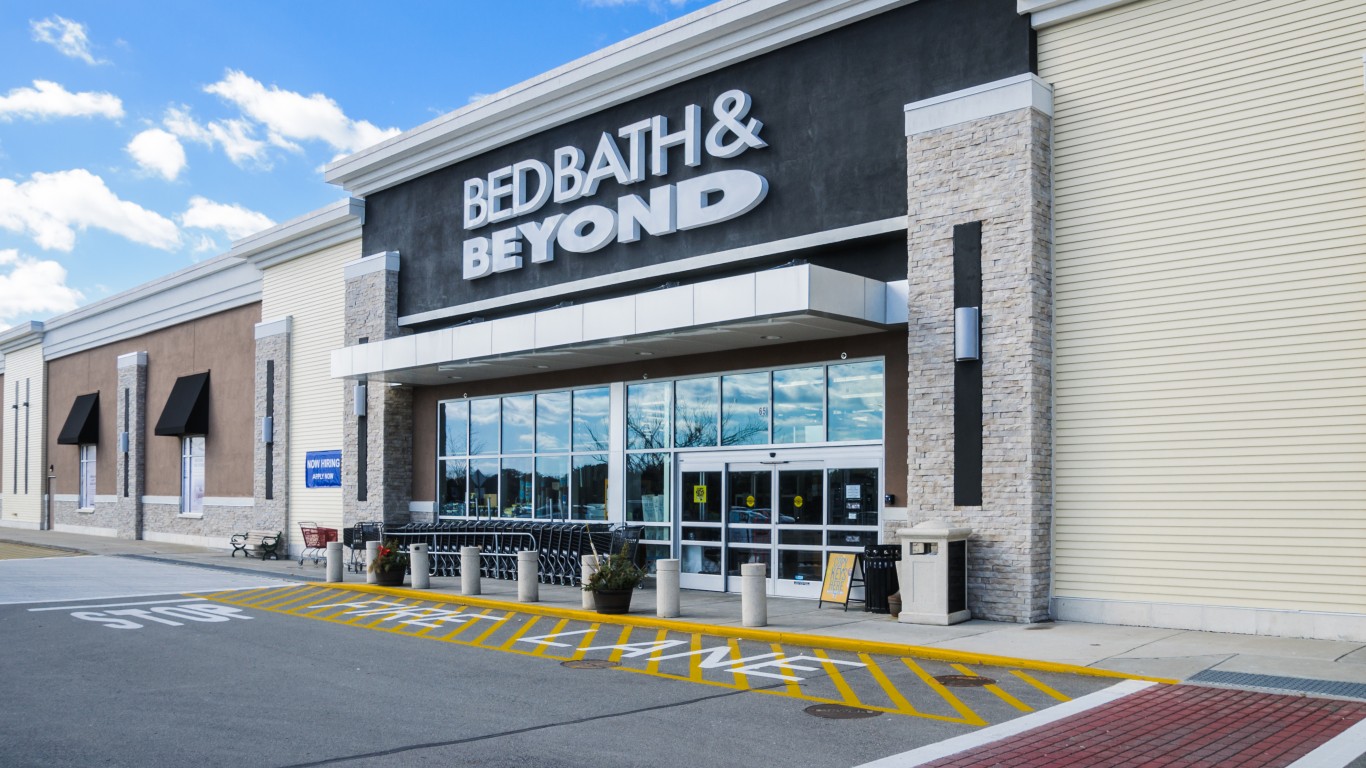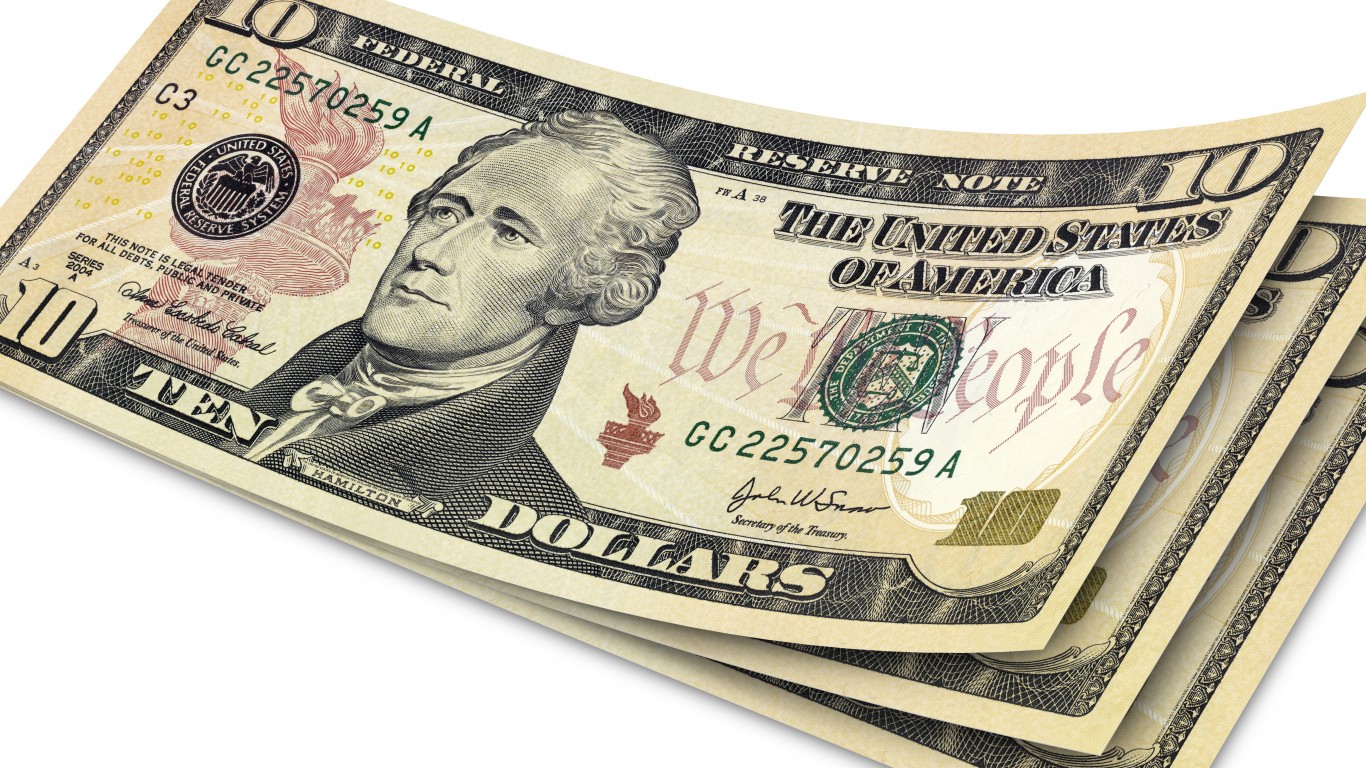
The three major U.S. equity indexes closed lower again Monday. The Dow Jones industrials ended the day down 1.11%, the S&P 500 closed lower by 1.03%,and the S&P 500 retreated 0.6%. Ten of 11 sectors closed lower, shown the way by real estate (down by 2.63%) and energy (down 2.57%). Consumer staples, the day’s only gainer, closed up 0.01%.
Economic news due Tuesday includes the Conference Board’s confidence index (expected to rise from 103.2 in August to 1.04.7) and the Census Bureau’s report on new home sales (expected to be roughly flat with August’s reported total of 511,000). All three major indexes traded higher early Tuesday.
Before U.S. markets opened on Tuesday, United Natural Foods reported that earnings per share (EPS) came in a penny better than expected but that revenue missed the consensus estimate. The food wholesaler also issued in-line guidance. Shares traded up about 2.4%.
Jabil soundly beat consensus estimates on both the top and bottom lines and issued guidance in line with expectations. The stock traded up about 4.2% shortly after the opening bell.
Here is a look at three companies reporting quarterly results before U.S. markets open on Thursday.
Bed Bath & Beyond
Before GameStop chair and activist investor Ryan Cohen sold his nearly 12% stake in mid-August, shares of Bed Bath & Beyond Inc. (NASDAQ: BBBY) had soared by a factor of nearly six since the beginning of the month. Retail investors (read: Apes) had piled into the stock and, just as quickly, exited on news that Cohen had sold.
Before his sale, Cohen did get the company’s board to replace the CEO and add three new members. The new management quickly announced a turnaround plan that included closing 150 stores and firing 20% of its staff. The stock price has continued to sink, however. Investors are not convinced that those steps are going to shake things up much.
Analysts are skeptical. Of 17 brokerages covering the stock, 12 have a Sell or Strong Sell rating, while five rate the shares at Hold. At a recent price of around $6.40 apiece, the shares trade at nearly double their median price target. At the high price target of $9.00, the upside potential is 40.6%.
Bed Bath & Beyond is expected to post fiscal second-quarter revenue of $1.45 billion, which would be down 1.2% sequentially and by 26.8% year over year. Analysts expect a loss per share of $1.80, compared with a per-share loss of $2.83 in the prior quarter and EPS of $0.04 in the year-ago quarter. For the full 2023 fiscal year ending in February, estimates call for a loss per share of $6.90, compared to a loss per share of $1.08 last year. Revenue is expected to fall by 22.3% to $6.11 billion for the fiscal year.
Bed Bath & Beyond is not expected to post a profit in 2023, 2024 or 2025. The enterprise value to sales multiple for each of the years is 0.6. The stock’s 52-week trading range is $4.38 to $30.06, and the company does not pay a dividend. Total shareholder return over the past 12 months was negative 72.2%.
CarMax
Shares of used car retailer CarMax Inc. (NYSE: KMX) have dropped nearly 45% of their value over the course of the past 12 months. The used car dealership sells, services and finances purchases at some 220 stores around the United States.
Last week, the company paid $186,480 to settle a discrimination complaint against the company and three other firms, including Capital One and Walmart. CarMax continues to struggle with its supply chain, interest rate hikes, and wary consumers. These issues, once expected to be in the rear-view mirror by the end of this year, are now expected to persist into 2023. The company has begun implementing its expansion strategy at a less-than-optimal time.
Of 19 analysts covering the stock, 11 have a Buy or Strong Buy rating and another six rate the shares at Hold. At a share price of around $80.00, the upside potential based on a median price target of $105.00 is 31.6%. At the high price target of $155.00, the upside potential is nearly 94%.
Second-quarter revenue is forecast at $8.55 billion, down 8.2% sequentially but 7% higher year over year. Adjusted EPS are expected to come in at $1.40, down 10.4% sequentially and by 18.6% year over year. For the full 2023 fiscal year ending in February, CarMax is expected to report EPS of $5.48, down 20.2%, on sales of $33.66 billion, up 5.5%.
CarMax stock trades at 14.6 times expected 2023 EPS, 13.6 times estimated 2024 earnings of $6.52 and 11.3 times estimated 2025 earnings of $7.10 per share. CarMax’s 52-week range is $76.00 to $155.98. CarMax does not pay a dividend, and total shareholder return over the past 12 months is negative 44.6%.
Rite Aid
Over the past 12 months, retail drugstore operator Rite Aid Corp. (NYSE: RAD) has seen its share price plummet by almost 56%. The stock last traded above the break-even line in early January. The stock got a temporary boost in mid-August on chatter that the company might be a takeover target, but it was just chatter.
Rite Aid’s wholly owned pharmacy benefits management business, Elixir, is driving growth but also driving up costs. For a struggling company with about $6.1 billion in net debt and a market cap one-sixth of that, higher costs are not what investors want to see.
Just three analysts pay attention to the shares, and none rates the stock above a Sell. At a price of around $6.50 a share, the upside potential based on a median price target of $7.00 is 7.7%. Upside potential based on a high price target of $8.00 is 23.1%.
Second-quarter revenue is expected to come in at $5.86 billion, down 2.5% sequentially and 4.1% lower year over year. The adjusted loss per share is forecast at $0.46, compared to a loss per share of $0.60 in the prior quarter and a loss per share of $0.41 in the second quarter of last year. For the full 2023 fiscal year ending in February, Rite Aid is expected to post a loss per share of $1.21 compared to last year’s loss of $1.51. Revenue is expected to drop by 3.3% to $23.75 billion.
Rite Aid is also not expected to post a profit in 2023, 2024 or 2025. The company’s enterprise value to sales multiple for each of the three fiscal years is 0.3. The stock’s 52-week range is $4.68 to $15.65. Rite Aid does not pay a dividend. Total shareholder return for the past year was negative 55.8%.
Are You Ahead, or Behind on Retirement? (sponsor)
If you’re one of the over 4 Million Americans set to retire this year, you may want to pay attention.
Finding a financial advisor who puts your interest first can be the difference between a rich retirement and barely getting by, and today it’s easier than ever. SmartAsset’s free tool matches you with up to three fiduciary financial advisors that serve your area in minutes. Each advisor has been carefully vetted, and must act in your best interests. Start your search now.
Don’t waste another minute; get started right here and help your retirement dreams become a retirement reality.
Thank you for reading! Have some feedback for us?
Contact the 24/7 Wall St. editorial team.

 24/7 Wall St.
24/7 Wall St.



